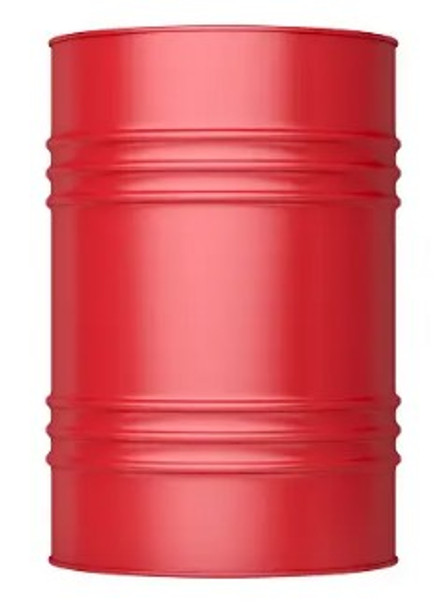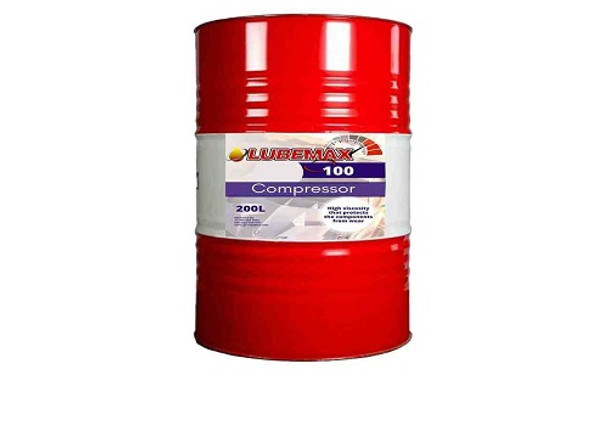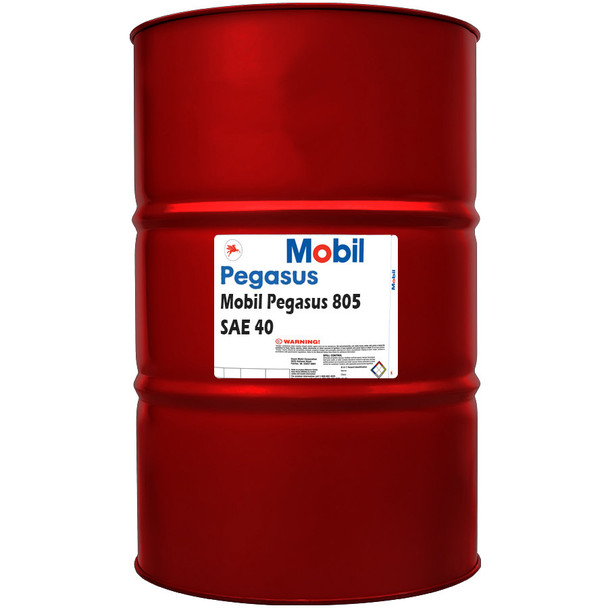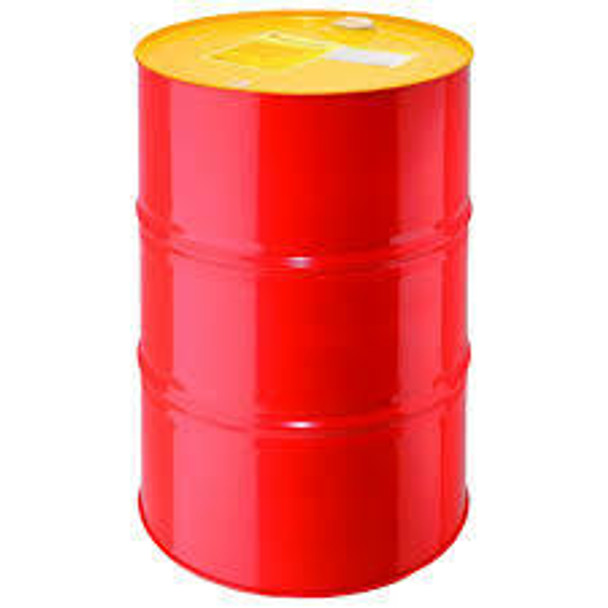The Benefits of Using High-Grade Industrial Lubricants
In the contemporary industrial environment, businesses in diverse sectors consider industrial lubricants crucial for optimizing efficiency, reducing downtime, and advancing sustainability goals. They play a crucial role in ensuring the efficient operation and longevity of machinery across the various sectors. These specialized lubricants are designed to reduce friction, dissipate heat, and protect components from wear and tear. Some of the High grade Industrial lubricants includes brands like Lubemax, Shell and Mobil.
Lets highlight some of the benefits of high grade Industrial Lubricants in various sector, In the manufacturing sector, industrial lubricants are essential for the smooth functioning of gears, bearings, and other moving parts in machinery, contributing to increased productivity and reduced downtime. In the automotive industry, lubricants are vital for the optimal performance of engines and transmissions, enhancing fuel efficiency and overall vehicle reliability. In the energy sector, lubricants are utilized in turbines, compressors, and other equipment, enabling reliable and continuous power generation. Furthermore, in the aerospace industry, lubricants are critical for aircraft engines and components, ensuring safety and reliability in flight operations. Across these diverse sectors, the use of high-quality industrial lubricants not only extends the lifespan of equipment but also contributes to energy efficiency, cost savings, and overall operational excellence.
In this article, we delve deeper into the importance of good lubricants, highlighting the various benefits they offer and their positive impact on overall operations. Click here to find where to buy industrial lubricants in Nigeria.
LubeMax Antifreeze/Coolant 50/50
Benefits of Using High-Grade Industrial Lubricants
1. Efficiency Enhancement
The Role of lubricants in reducing friction: Lubricants play a pivotal role in machinery efficiency by reducing friction between moving components. Friction is a natural byproduct of mechanical processes, and without proper lubrication, it can lead to increased wear and energy loss. High-grade industrial lubricants create a protective film that minimizes direct metal-to-metal contact, preventing friction-related issues.
Impact on machinery performance: Effective lubrication positively influences machinery performance by ensuring smooth and uninterrupted operation. Reduced friction allows machinery to operate with less resistance, leading to lower energy consumption, decreased heat generation, and optimized overall performance. Well-lubricated machinery is more reliable, responsive, and less prone to breakdowns.
Contribution to increased productivity: The efficient operation facilitated by high-grade lubricants directly contributes to increased productivity. Machinery that operates smoothly and reliably requires less downtime for repairs and maintenance, leading to higher production output. The consistent performance of lubricated machinery enhances overall operational efficiency and supports businesses in meeting production targets.
LubeMax Compressor 100 200L
2. Reduced friction and downtime minimization for extended machine life
A. Prevention of wear and tear: One of the primary causes of machinery downtime is wear and tear on critical components. High-quality lubricants act as a protective shield, reducing the wear on moving parts and preventing premature damage. This proactive approach to preventing wear contributes significantly to minimizing unexpected downtime.
B. Maintenance of smooth machinery operation: Regular application of lubricants ensures the maintenance of smooth machinery operation. Lubricated components experience less resistance, reducing stress on the machinery and minimizing the likelihood of malfunctions. Smooth operation, in turn, supports ongoing production processes and reduces the need for unscheduled maintenance.
C. Reduction in operational disruptions: By preventing wear and tear and maintaining smooth operation, the use of high-grade lubricants contributes directly to a reduction in operational disruptions. Machinery breakdowns and unexpected maintenance issues are minimized, allowing for more predictable and consistent production schedules.
Mobil Pegasus 805 208Ltrs Drum
3. Minimized maintenance and extend equipment lifespan
A. Protective qualities of high-grade lubricants: High-grade lubricants provide superior protection to machinery components. The formation of a protective film reduces friction, prevents corrosion, and shields against contaminants. These protective qualities are instrumental in extending the lifespan of equipment and ensuring long-term reliability.
B. Reduction in the frequency of equipment replacements: The prolonged life of machinery directly translates to a reduction in the frequency of equipment replacements. High-quality lubricants contribute to minimizing the wear and stress on critical components, thereby extending the intervals between necessary replacements. This not only saves on replacement costs but also reduces the environmental impact associated with manufacturing and disposing of new equipment.
C. Cost savings through prolonged equipment life: Extended equipment lifespan results in significant cost savings for businesses. By reducing the need for frequent replacements and minimizing downtime, businesses can allocate resources more efficiently. The upfront investment in high-grade lubricants proves cost-effective in the long run, enhancing the overall economic sustainability of machinery operations.
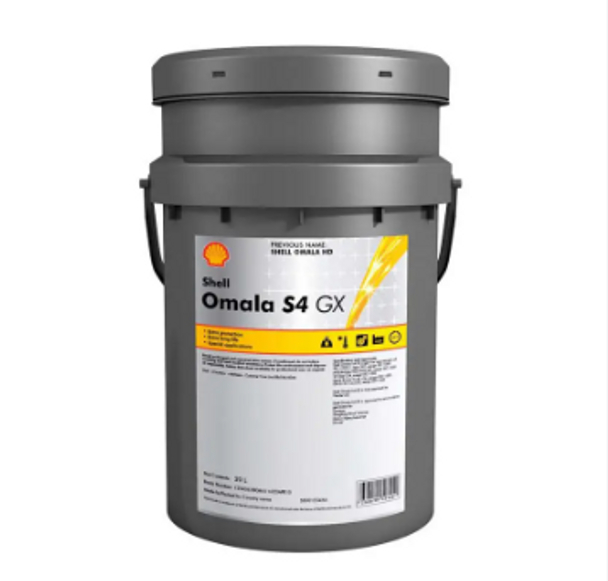
Shell Omala S4 GX Industrial Gear Oil
4. Sustainability: reducing CO2 emissions
A. Environmental impact of industrial lubricants: The environmental impact of industrial lubricants is a critical consideration. While lubricants are essential for machinery, their disposal and potential environmental effects must be carefully managed. High-grade lubricants often come with formulations that reduce environmental impact, addressing concerns such as biodegradability and minimizing pollution.
B. Consideration of eco-friendly lubricant options: A crucial aspect of sustainability is the choice of lubricants that are environmentally friendly. The industry is evolving to offer eco-friendly lubricant options, such as bio-based or synthetic lubricants with reduced environmental footprints. These options align with corporate sustainability goals and contribute to environmentally responsible practices.
C. Contribution to overall corporate sustainability goals: The use of eco-friendly lubricants forms part of a broader strategy for corporate sustainability. Businesses that prioritize sustainable practices, including the choice of lubricants, demonstrate a commitment to reducing their overall environmental impact. This alignment with sustainability goals enhances the corporate image and meets the growing demand for environmentally conscious business practices.
Shell Ensis DW2455 Corrosion inhibitor 209L
5. Specialized solutions for the food industry
In the food industry, prioritizing the safety and adherence to regulations regarding lubricants is of utmost importance. Some lubricants strictly conform to the rigorous regulations and standards established for the food industry, rendering them well-suited for situations where inadvertent contact with food may occur. By employing GZ supplies food-grade lubricants, one can maintain the utmost levels of cleanliness, safety, and operational efficiency in food processing and packaging activities.
Conclusion
Industrial lubricants brings lots of benefits for different businesses. They help machines work better, last longer, and reduce the chances of them breaking down. These high-quality lubricants also make machines use less energy and can save money in the long run. When we use eco-friendly options, it's not just good for the machines; it's good for the environment too. So, in simple terms, using the best lubricants is like giving our machines a superpower – they work better, last longer, and save money.
Frequently Asked Questions
Q1 What are the benefits of industrial lubricants?
To minimize wear and friction, industrial lubricants create a shielding layer between moving parts. In addition to reducing the need for repairs and maintenance, this helps equipment last longer. In order to keep machinery from overheating and suffering damage as a result, lubricants help disperse heat produced during operation.
Q2 What is the composition of industrial lubricants?
Mineral oils, which are petroleum fractions, make up 90% of the base oil in lubricants, with less than 10% coming from additives. Base oils can occasionally be made from vegetable oils or synthetic liquids like silicones, hydrogenated polyolefins, esters, fluorocarbons, and many more.
Q3 What type of lubrication is generally used with most industrial gears?
Grease lubrication is an excellent option at low speeds. There are few exceptions to the rule that splash lubrication and forced oil circulation lubrication are better suited for medium and high speeds. Even at high speeds, grease lubrication is occasionally used for maintenance purposes.
Related Articles
The Global Synthetic Lubricants Market 2024
The Hidden Secrets of Changing Your Gear Oil: Unleashing the Benefits
Where to Buy Marine Lubricants in Nigeria: A Guide to Finding Suppliers Near You
Contact us for all enquiries on Industrial Lubricants.


